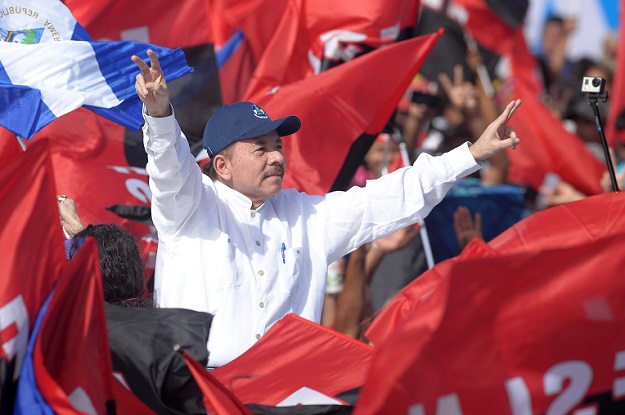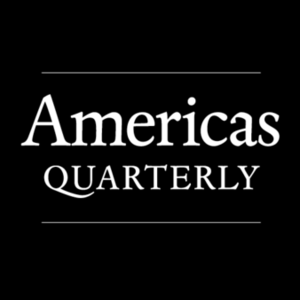
Photo by MARVIN RECINOS / AFP) (Photo credit should read MARVIN RECINOS/AFP/Getty Images
http://americasquarterly.org/content/unfortunately-others-will-follow-nicaraguas-path-latin-america
During a research trip I took to Central America last year, Nicaragua turned out to be the easy part. Unlike Honduras or El Salvador, which require careful planning due to the abysmal security situation, Nicaragua was among the safest countries in Latin America, despite being one of the continent’s poorest. While homicide rates in neighboring Costa Rica are around 12 per 100,000 (and a staggering 46 and 60 per 100,000 in Honduras and El Salvador, respectively), Ortega’s Nicaragua boasted a remarkably low 6 per 100,000, only slightly above the U.S. average. “Nicaragua is an island of stability in a sea of violence”, one Nicaraguan proudly told me – thanks to a combination of policies including community policing and recreational programs for vulnerable youth.
And yet, as I wrote soon after returning home to Brazil, it was clear that Nicaragua would at some point be in deep trouble. Though the timing was impossible to determine, the clashes that have led to the deaths of over 300 protesters in recent months were no surprise. As long as the country’s economic outlook was bright, most Nicaraguans turned a blind eye to Ortega’s increasingly authoritarian ways. Indeed, as opposition figures told me during our conversations, their complaints failed to resonate with their countrymen, even as the government’s repression became ever more overt, including the expulsion of foreign academics and threats to regime critics. During a discussion with an economist in Managua, our interlocutor casually commented that we were almost certainly being monitored during our stay.
Three things suggested Nicaragua’s fairly tale would end badly.
First of all, the continuous erosion of checks and balances allowed President Ortega to govern almost without constraints and be surrounded by adoring yes-men. As a consequence, he became increasingly unaware of what was going in the country. Only rarely appearing publicly in the past years – and if so, only in carefully staged speeches stacked with supporters, Ortega had lost what had once made him such an endearing figure to his countrymen – his common touch and capacity to connect to Nicaraguans of all walks of life. Only complete aloofness could lead the president to overlook that making his wife Rosario Murillo vice president while relegating cabinet members to the sidelines would make the population identify unsettling parallels to the brutal Somoza family’s regime. As a consequence, Ortega reacted with genuine surprise when Nicaraguans took to the streets after cuts in pensions. Long unaccustomed to even slight criticism, Ortega opted for ruthless violence and has rejected any meaningful dialogue, accusing even the Catholic Church of acting on behalf of the CIA.
Secondly, part of Ortega’s popularity rested on significant economic aid from Venezuela through the Petrocaribe program, which the president managed without parliamentary oversight, allowing him to finance social programs relevant to his most loyal supporters. With Venezuela’s economy in free fall, support to its allies has been reduced to a trickle (with Cuba being the exception), forcing Ortega to reduce social spending. Rather than opting for a frank public debate about how to adjust to new realities, the decisions were taken behind closed doors, leaving disgruntled citizens with few other options than to take the streets.
Finally, though corruption is prevalent across all political systems, family dictatorships are particularly vulnerable to massive graft. Even last year, when things were still going smoothly on the surface, several interlocutors complained of little oversight in massive building projects, above all the notorious Nicaragua Canal. One local activist told us he believed the entire project, with no real prospect of ever being implemented, was little more…
Read complete article here.









